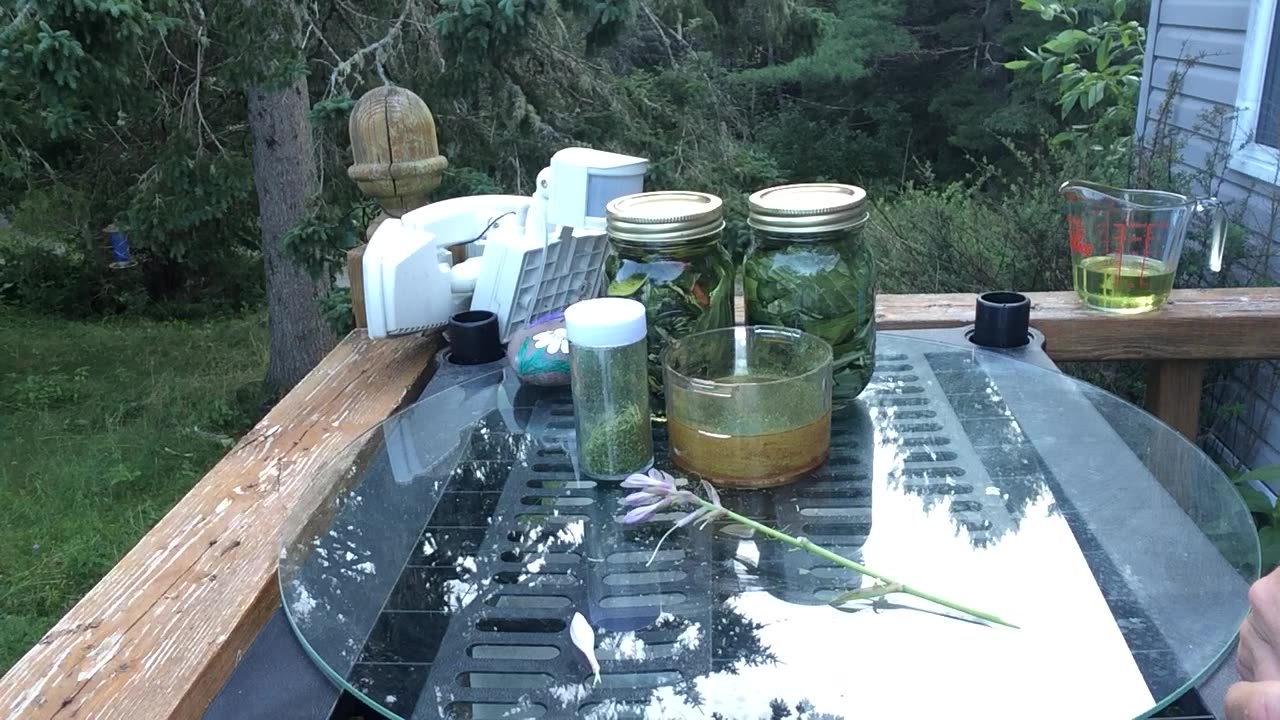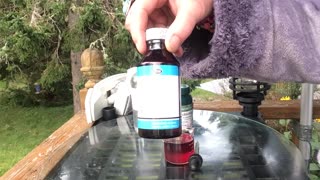Premium Only Content

Eat and use your Hosta for medicine
Hostas are not just ornamental plants for gardens and landscapes, they also have medicinal properties that have been used for centuries.
In traditional Chinese medicine, hosta leaves have been used to treat inflammation, pain, and fever. The plant contains compounds such as saponins and flavonoids that possess anti-inflammatory and antioxidant properties.
Moreover, hostas are also believed to have diuretic effects which can help reduce fluid retention in the body. In addition, some studies suggest that hostas could aid in digestion by increasing bile secretion and promoting bowel movements.
The leaves and roots of the plant contain compounds that have anti-inflammatory, analgesic, and wound-healing effects. These properties make hostas a valuable addition to any herbal medicine cabinet.
In particular, hosta extracts have been found to be effective in treating skin conditions such as eczema and psoriasis. Studies have shown that the plant’s polysaccharides can reduce inflammation and help regenerate damaged skin cells. Hosta extracts are often used in creams and ointments to soothe irritated skin, making them a natural alternative to harsher chemical treatments.
Beyond their medicinal properties, hostas have also been used in various other traditional practices.
For example, the plant has been used in Korean cuisine for its sweet flavor, while in Japan it is believed to ward off evil spirits when planted near homes. These traditional uses speak to the rich cultural significance of hostas around the world.
Hostas As Anti-Inflammatory Agents
Hostas have been traditionally used in East Asian medicine to treat a variety of ailments, including inflammation. Recent studies have suggested that hosta plants may indeed contain anti-inflammatory properties that could benefit human health.
Hostas contain several phytochemicals, including saponins and flavonoids, which are known for their anti-inflammatory effects. Saponins are compounds found in many plants that have shown promise as natural treatments for inflammation-related diseases such as arthritis and asthma. Flavonoids, on the other hand, are potent antioxidants that can help reduce oxidative stress and inflammation in the body.
Incorporating hostas into your diet or taking supplements containing hosta extract may be worth considering if you suffer from conditions such as arthritis or asthma. With their long history of use in traditional medicine and promising scientific evidence, hostas may hold great potential as a natural anti-inflammatory agent.
According to research, hostas contain saponins, which have been found to have anti-cancer properties. These compounds work by inhibiting the growth of cancer cells and inducing apoptosis, a process whereby abnormal cells self-destruct.
Furthermore, studies indicate that saponins can also enhance the efficacy of chemotherapy drugs, making them more effective in treating cancer.
In addition to saponins, hostas contain other bioactive compounds such as flavonoids and phenolic acids that have been shown to possess antioxidant and anti-inflammatory activities. These properties can help in reducing inflammation and oxidative stress, which are known risk factors for cancer development.
With further research, hostas could potentially become a valuable natural source for developing new cancer treatments or preventive measures.
The medicinal properties of hostas have been used for centuries in traditional medicine and are now being validated through modern scientific research.
From their anti-inflammatory effects to their potential as cancer treatments, hostas offer a range of therapeutic possibilities.
As researchers continue to uncover the full extent of hosta’s medicinal properties, we may see it become a more prominent feature in natural medicine practices.
For those interested in incorporating plant-based therapies into their health routine, considering the use of hosta may provide a viable option for improved well-being.
I am dehydrating hosta for later use...I make an oil with these....the flowers are medicine too! You can eat them!
The Medicine is all around you! It just got labeled as a weed or an ornamental plant haha....the FORGOTTEN WILD MEDICINES!!!! These are the GIFTS!
-
 19:24
19:24
Medicine woman in the woods
9 months agoMicro dosing 100% pure gum spirit turpentine for parasites
9.53K111 -
 42:56
42:56
Grant Stinchfield
2 hours ago $1.30 earnedTechnology Along with President Trump, Will Make Our Military Great Again!
4.4K5 -
 1:11:04
1:11:04
Sam Tripoli
3 hours ago $2.04 earnedThe Conor McGregor Case Debate with Jesse On Fire and Jason Bermas at 11:30am pst
8.79K6 -
 1:27:50
1:27:50
Twins Pod
6 hours agoEXPOSING The Music Industry & Its Control Over BLACK CULTURE! | Twins Pod - Episode 41 - Dom Lucre
44.9K9 -
 15:06
15:06
Professor Nez
2 hours ago🚨BODYCAM FOOTAGE RELEASED! Entitled Democrat Official RESISTS Officers During DUI Stop
13K27 -
 35:17
35:17
Athlete & Artist Show
6 days ago $1.12 earnedIs The BCHL On Its Way Out? Brooks & Penticton Apply For WHL
15.4K2 -
 53:45
53:45
The Quartering
4 hours agoTrump Trolls For Thanksgiving, Free Palestine Losers F around and Find Out & More
58.3K22 -
 LIVE
LIVE
Britbong
19 hours ago🔴BRITBONG'S BANTER HOUR (Videos/Banter/Gaming)
351 watching -
 5:16:45
5:16:45
REVRNDX
7 hours agoRUMBLE IS MY NEW HOME
25.3K -
 41:10
41:10
Officially Unfollowed
4 hours ago $1.78 earnedBruce Jenner for Governor, Bin Laden's Hard Drive & Putin's Botox | Ep. 17
10.3K3